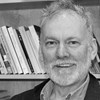oddie

Graham Oddie
I am a Professor of Philosophy at the University of Colorado (Boulder). Originally from New Zealand, I defended my PhD dissertation, on the concept of truthlikeness, at the London School of Economics
Graham Oddie: What's so good about being happy?
Graham Oddie, Professor of Philosophy, University of Colorado at Boulder ABSTRACTHappiness and well-being have both played a rich role in the history of value theory and of ethics, but they also featur
Graham Oddie: What’s so bad about adaptive preferences?
Graham Oddie, Professor of Philosophy, University of Colorado Boulder Abstract Our desires and preferences change, but one particular kind of change in preferences has been singled out for opprobrium—so
Epistemic Utility Theory Meets Population Ethics
Epistemic utility theorists have recently started addressing the question of how to compare epistemic states that differ in the number of propositions they have an opinion on. It has become apparent t
Well-being and population ethics
Workshop on well-being and population ethics. Part of the project ‘Valuing future lives’ (‘Att värdera framtida liv’), funded by the Swedish Research Council (‘Vetenskapsrådet’). Venue: The Institute f
Workshop: Progress in Ethics
PROGRESS IN ETHICS Workshop at the Institute for Future Studies (IFFS), Stockholm, 19-20 June 2023 This is an open workshop, but seats are limited. Interested in attending? Send an e-mail to [email protected]:30 – 11:00: Coffee 11:00 – 12:30: Finnur Dellsén (University of Iceland/Inland Norway University/Oslo), Tina Firing (University of Iceland), and James Norton (University of Iceland), “Understanding Philosophical Progress” 12:30 – 14:00: Lunch 14:00 – 15:30: Joe Roussos (IFFS), “When is agreement between moral models significant?” 15:30 – 16:00: Coffee 16:00 – 17:30: Ylwa Sjölin Wirling (Gothenburg), “A portrait of understanding as a nonfactive state”

Progress in Ethics
This is an international network of researchers from a variety of disciplines, providing a forum for discussions on what progress have been made in the field of ethics.








